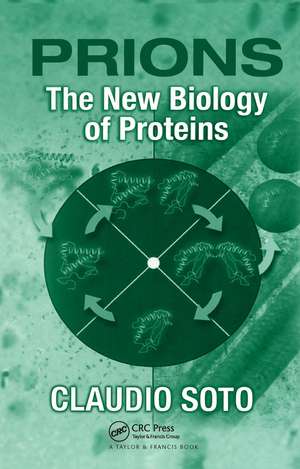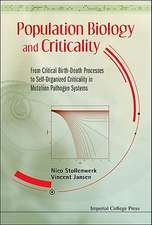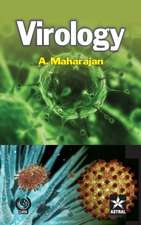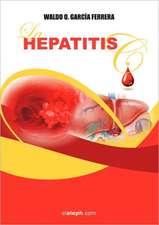Prions: The New Biology of Proteins
Autor Claudio Sotoen Limba Engleză Hardback – 20 dec 2005
A cohesive volume that integrates the pioneering work of many researchers, this book is authored by Claudio Soto, an internationally renowned researcher whose innovative work has led to an increased understanding of the heretical biology of prions and the development of novel strategies for treating and diagnosing neurodegenerative diseases.
As protein misfolding diseases are his specialty, Soto also looks at the phenomenon from a wider perspective. He examines other diseases that display folding aberrations, considers how commonly such aberrations occur in nature, and asks readers to open their minds to consider the impact of prions on broader areas of biology, public health, and biotechnological
| Toate formatele și edițiile | Preț | Express |
|---|---|---|
| Paperback (1) | 485.67 lei 6-8 săpt. | |
| CRC Press – 23 oct 2019 | 485.67 lei 6-8 săpt. | |
| Hardback (1) | 1543.89 lei 6-8 săpt. | |
| CRC Press – 20 dec 2005 | 1543.89 lei 6-8 săpt. |
Preț: 1543.89 lei
Preț vechi: 1882.80 lei
-18% Nou
Puncte Express: 2316
Preț estimativ în valută:
295.42€ • 309.27$ • 244.44£
295.42€ • 309.27$ • 244.44£
Carte tipărită la comandă
Livrare economică 05-19 aprilie
Preluare comenzi: 021 569.72.76
Specificații
ISBN-13: 9780849314421
ISBN-10: 0849314429
Pagini: 190
Ilustrații: 4 Halftones, black and white; 4 Tables, black and white; 10 Illustrations, color; 24 Illustrations, black and white
Dimensiuni: 156 x 234 x 18 mm
Greutate: 0.43 kg
Ediția:1
Editura: CRC Press
Colecția CRC Press
ISBN-10: 0849314429
Pagini: 190
Ilustrații: 4 Halftones, black and white; 4 Tables, black and white; 10 Illustrations, color; 24 Illustrations, black and white
Dimensiuni: 156 x 234 x 18 mm
Greutate: 0.43 kg
Ediția:1
Editura: CRC Press
Colecția CRC Press
Public țintă
Professional ReferenceCuprins
Prologue. Prion Diseases: Clinical Symptoms, Epidemiology and Neuropathology. The Infectious Agent and the Prion Hypothesis. The Prion Protein: Cell Biology, Genetic and Putative Function. Prion Replication by Transmission of Protein Conformation. Prion Strains and Multiple Conformations of the Prion Protein. Prions: From the Mouth to the Brain. Neurodegeneration in Prion Disease. The Diagnosis Problem and Current Tests. Therapeutic Approaches. Cyclic Amplification of Prion Protein: Rationale, Application and Perspectives. Other Diseases of Protein Misfolding. Prions: A Common Phenomenon in Biology?
Descriere
This volume offers a well-organized overview of prion-related diseases. It reviews the symptoms, epidemiology, and neuropathology of the disease, and focuses on the idea that TSEs result from a novel mechanism involving transmission by replication of the misfolding of a single protein. The author, a renowned innovator in the area of neurodegenerative diseases, examines the structure, conversion, and mechanism of prion propagation and details its cellular biology. He also looks at other diseases that display folding aberrations, considers how common such aberrations are, and speculates on the impact of prions on broader areas of biology, public health, and biotechnological strategies.
























